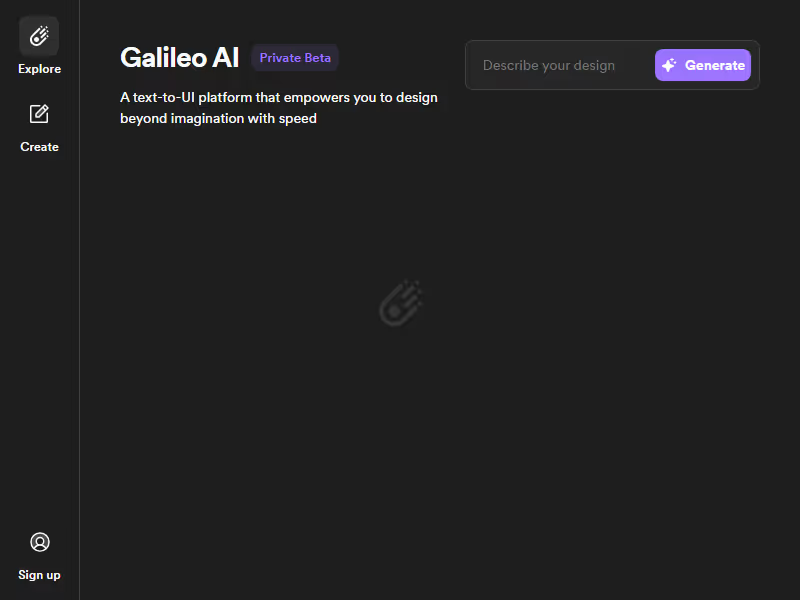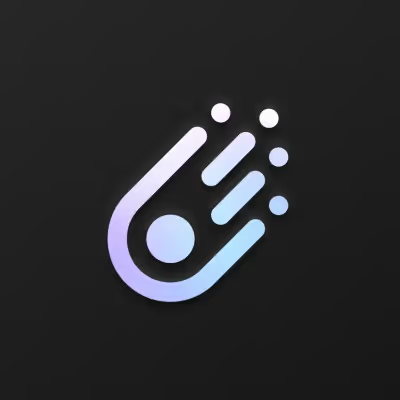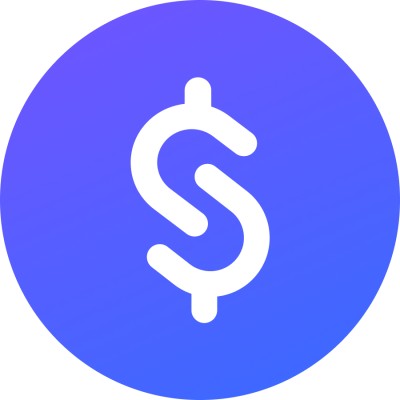
Galileo AI envisions a world where anyone, regardless of their design expertise, can manifest high-quality, production-ready user interfaces simply through natural language. We are driven by the conviction that technology should democratize creativity and empower individuals to accelerate product development at unprecedented speeds.
By pioneering generative AI specifically tailored for UI design, Galileo AI reshapes how digital products come to life, transforming complex design workflows into seamless, intuitive experiences. Our innovative prompt-to-UI technology and deep integration with collaborative platforms like Figma enable rapid ideation, iteration, and co-creation across teams and individuals alike.
As we forge ahead, Galileo AI is committed to expanding the boundaries of design automation and creative expression, building an accessible future where the gap between ideas and execution is bridged instantly through the power of generative AI.
Our Review
We've been watching Galileo AI since their private beta launch in October 2023, and honestly? We're impressed by how they've tackled one of design's most persistent challenges: turning a vague idea into something visual that actually looks good.
The premise is simple but ambitious—type what you want (like "a news app home screen with dark mode"), and get back a high-fidelity UI design that you can immediately edit in Figma. What caught our attention isn't just that it works, but how quickly it evolved from "interesting experiment" to "actually usable tool."
The Quality Leap That Changed Everything
Here's what's fascinating about Galileo's story: they almost gave up early on. Their initial experiments with GPT-3 were, by their own admission, pretty disappointing. But instead of pivoting, they doubled down on R&D through 2023.
The breakthrough came in early 2024 when their output quality jumped from "demo-worthy" to "production-ready." We've tested the current version, and the designs genuinely look like something a human designer would create—not the obviously AI-generated layouts we've seen from other tools.
Who's Actually Using This
We love that Galileo isn't trying to replace designers entirely. Instead, they're serving three distinct groups really well: founders who need to visualize ideas quickly, engineers who want to preview concepts before coding, and designers who use it for rapid prototyping.
The Figma integration is clutch here. Rather than creating a walled garden, Galileo spits out designs you can immediately customize in the tool most design teams already use. It's a smart move that shows they understand actual workflows.
The Reality Check
Let's be real—$4.8 million in funding with just four employees tells a story. This is still a small, scrappy team betting big on AI's trajectory. Their 244,000 monthly visitors suggest strong interest, but we're curious how they'll scale both technically and commercially.
The bigger question is whether prompt-to-UI becomes a standard workflow or remains a niche tool. Based on what we've seen, Galileo's positioned well either way—they've built something that actually works, which is rarer than you'd think in this space.
Feature
Prompt-to-UI generator for instant, editable UI designs from natural language
AI-generated illustrations library
Figma integration for direct design editing and collaboration
Large template library for rapid design iteration
Context-aware copywriting for product copy based on UI context








